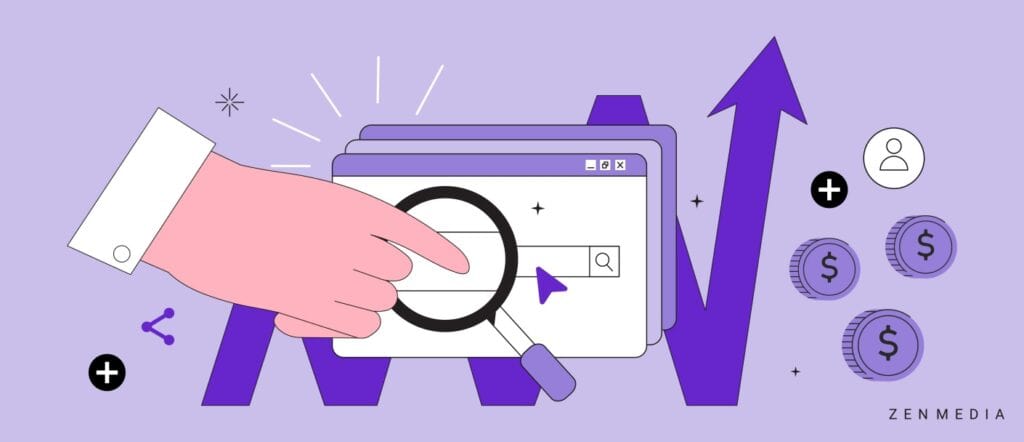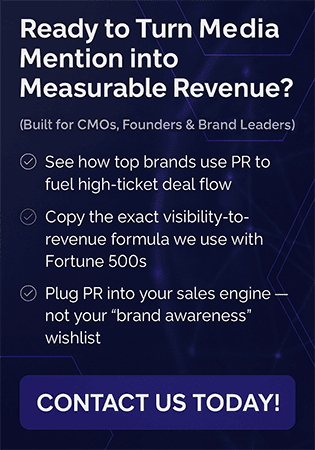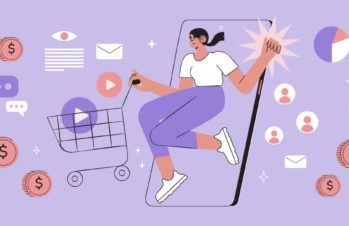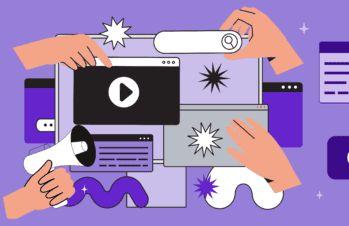Barbie and Oppenheimer define Summer 2023. Star-studded with Margot Robbie and Cillian Murphy, both films’ box office home runs are attributable to thoughtful, multi-pronged marketing approaches. How did the films reach explosive success? With holistic marketing approaches that meet viewers where they are. For instance, a DreamHouse in Malibu hosted by Ken on Airbnb, a Barbie-inspired froyo at Pinkberry, and a pink search page when you Google Barbie. Oppenheimer trailers have played in theaters since 2022, and stars from the film shared the trailer on social media.
Why are the successes of these films relevant to paid search and PPC? Because the whole of a marketing strategy is greater than its parts. Barbenheimer summer showcases the execution of campaigns on multiple levels. Just as Barbie marketing included IRL components, a partnership with Google, and fun booths at the movies, any business’ marketing and PR approach should consider the different ways to reach target buyers. PPC and paid search are parts of a strategy that strengthen the whole and add to your bottom line.
Demystifying Paid Search and PPC
Advertisement channels range from billboards to sponsored Instagram advertisements and beyond. There is no singular correct approach to reaching a customer. It’s not atomic science, but it’s no day in Barbieland, either. To ensure that goals and objectives are met, it’s essential for a business’s marketing strategy to include several components, two of which are paid search and PPC. Google processes over 90,000 search queries a second. Do you want a piece of the pie?
You’ve heard it before: people’s buying habits have changed. Buyers want to be shown what they’re searching for; they want to feel seen. They anticipate an advertisement for what they’ve searched for while they’re scrolling on Instagram. It’s beneficial to fulfill this expectation because if you don’t, it is a missed opportunity. In fact, 75% of people say that paid search ads make it easier for them to find what they are searching for on a search engine. Your business name appearing at the top of a SERP is much like a Barbie flavor available at Pinkberry. It’s a little wink that goes a long way. Buyers are reminded of your product or service, you stay top of mind, and that touchpoint increases the likelihood that the buyer will convert.
Imagine that you are searching for something on Google. The results at the top of the page are marked ‘Ad.’ These are examples of paid search ads that enhance businesses’ visibility online. Advertisers bid on specific keywords, and they secure the top spot on search engine result pages.
PPC is a form of online marketing where advertisers pay each time a user clicks on one of their advertisements. The main player in the PPC game is Google; people are four times as likely to click on a paid ad on Google. In the Google Ad marketplace, advertisers bid on keywords, and their ads will rank at the top of search engine results pages (SERPs) when those keywords are searched. Clicks convert to customers and result in a positive return on investment.
How Paid Search and PPC Work
Suppose you’re an enterprise sustainability technology company wanting to drive more website traffic. With PPC, you would create an ad. Part of the ad strategy would include selecting keywords that target buyers would search for, like “enterprise sustainability solutions.” An ad would appear in the search results when target buyers enter these keywords. Each time the ad is clicked on, you pay a small fee. In return, you get more site visitors who are likely to convert. When it comes to paid search, you bid for the ad placement in a search engine’s sponsored links for keywords related to your business. When the search happens, your ad could show up in the top spot of the SERP.
Paid search and PPC are two tools you want to have in your toolbox. They increase brand visibility, drive traffic, and boost sales. Businesses are able to reach their audiences as they search for products, services, or information. When a business appears right away, it shows potential buyers that their needs are important to you. This psychological insight can be overlooked, but buyers want to know that the companies they do business with have high standards.
What Roles Do Paid Search and PPC Play in Marketing?
With the overwhelming distractions we all experience today, buyers are not scrolling through multiple pages of Google. The odds of reaching a buyer are much higher when your business name results first on SERP. You can be placed at the top of the SERP, even above organic results. PPC allows you to target your audience across platforms based on their demographics, interests, and online behavior.
Advertising evolves with the times. So do paid search and PPC. Imagine Don Draper dreaming up a Facebook carousel or considering SERP. In 2023, he would have to. From simple text ads to video ads and immersive online experiences, advertising has changed drastically. With it, the algorithms have, too. Data is everything, and for advertisers, it can be used to the business’ advantage and bottom line. Buyers are pleased because the ads served to them are relevant. The technology ecosystem and players comprising the paid search and PPC world are intricate and vast. Tools for keyword research, data analysis, and campaign optimization are equally vast and increasingly sophisticated.
What Makes an Effective Paid Search and PPC Strategy?
You need to get the right people to click. With hundreds of millions of internet users and lots of competition, how hard can it be? Not as hard as you might think, at least not when you take a thoughtful approach. You need to understand your audience in order to communicate with them effectively. Barbie’s marketing team knew that her adolescent and teenage fans enjoy Pinkberry, hence the flavor. Oppenheimer’s marketing team knew that moviegoers would be entranced by the trailer and that aligning the film’s release with the anniversary of the bomb being dropped would stir anticipation. Your business needs to know your audience in a similar way. What makes your audience tick?
Tailored messages and keywords will inform your strategy. This might include the use of data-driven analytics tools and close-reading reviews and the language customers use to discuss your product or service. From there, your marketing and PR teams can reverse engineer the PPC and paid search strategy.
After Buyers Click, They Need a Place to Land
Once the audience is well-understood and keywords are captured, target buyers will need to land somewhere when they click on the ad. Landing pages and websites are equally important. The job of PPC is to guide buyers to click on your site. Once buyers arrive on the page, the visuals, messaging, and experience need to resonate enough to convince them to convert into customers. Copy and visuals that align with the searcher’s intent will need to be a part of your strategy.
You probably already have a brand story, mission statement, and pillars that define your company values. Keeping these aspects in mind is important as you flesh out a PPC and B2B paid ads strategy because cohesion is key. Messaging and branding need to speak to net new buyers, who perhaps found your business via a landing page, as well as returning customers, who probably have been on your website a few times. Both cases demand that you are clear about who you are, what you offer, and why buyers should choose you over the competition.
With the right education, strategy, and tools, PPC and paid search can be distilled into both an art and a science. There are numerous resources available online, and warning, they can get really technical. Once you evolve into the implementation and ad management phase of your paid search and PPC journey, you will need to learn about quality scores, bid management, and conversion tracking. These aspects of paid search and PPC will be necessary to understand in order to operate at the most optimized level. Ads will be ranked on relevance and quality, so approach paid search and PPC in an authentic way so that you can avoid headaches from the start and hit the ground running.
As you continue to build out your B2B marketing strategy, remember that paid search and PPC are parts that make up a great sum. Similar to how Barbie and Oppenheimer employed multi-pronged approaches, you should, too. Because there’s a lot of noise, and a well-rounded strategy will help you cut through that noise. Getting specific in this area of the business will have a ripple effect. When there are only a few keywords that you need to focus on or you need to double down on a direction, it will provide you and the business with more clarity than before.
Yes, there are many approaches. Yes, there are many channels. At the end of the day, though, they are all part of a single network. PPC and paid search offer an element to your marketing strategy that an email newsletter or a Tweet does not by sheer nature: buyers expect different communication based on the platform that they are on at the moment. When you’re scrolling through Twitter, you might not be in a buying mindset. When you search for a product or service, you are. Surely there are people who were shopping for nail polish, found the Barbie OPI nail polish color, and thought, OK, time to see the movie! Similarly, there were moviegoers at Mission Impossible who said, “I’m seeing Oppenheimer next.” You want to give your buyers the same nudge of encouragement.
When it comes to this journey, there’s no need to be a solo explorer. Zen Media is well-versed in the paid search and PPC arena, and we help our customers reach the right people at the right time. Discover how we can help you turn clicks into conversions.





